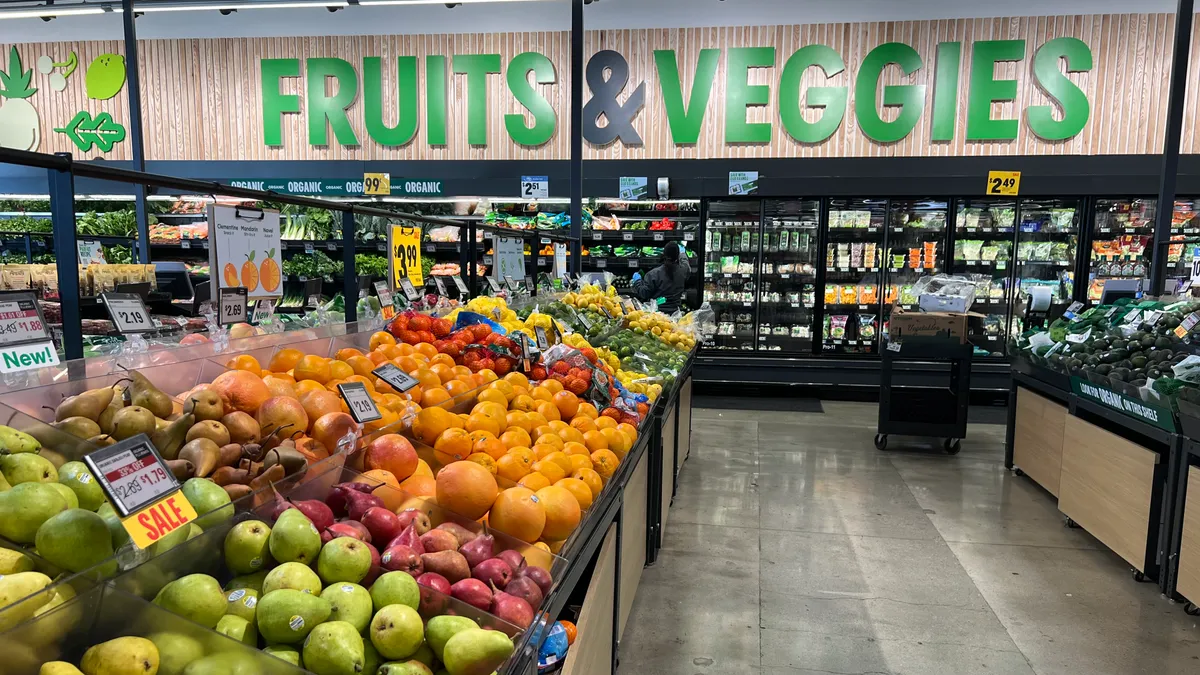Dive Brief:
- Low-income families will have more money for fruits and vegetables under one of the largest rule changes in a decade to the Special Supplemental Nutrition Program for Women, Infants and Children.
- The U.S. Department of Agriculture said Tuesday that updates to WIC will increase the cash allowance for fruits and vegetables, plus expand the types of produce available for purchase. The changes also enhance access to whole grains and dairy substitutes such as plant-based yogurts and cheeses.
- The revisions additionally decrease monthly allowances for milk and juice, reflecting dietary recommendations from groups including the National Academies of Science, Engineering, and Medicine.
Dive Insight:
Around 6.6 million mothers and children rely on the WIC program, and any changes to eligible purchases can shape consumer behavior with ripple effects across the entire food industry.
The revisions make permanent an increase to the fruit and vegetable benefit provided to WIC participants during the pandemic. State agencies will also be required to authorize one other form of fruits and vegetables other than fresh, such as frozen or canned.
"Research shows that participants purchased healthier foods, and WIC-authorized stores carried healthier products, as a result of updates implemented in 2009," Georgia Machell, interim president and CEO of the National WIC Association, said in a statement. "We are confident that these newest updates will yield similarly positive outcomes."
WIC enrollment increased for the first time in a decade in fiscal year 2022, and the changes are meant to allow participants to maximize their benefits. States will have two years to implement the new rules, which allow them to tailor food packages to accommodate cultural food preferences and special dietary needs.
This boost for the WIC program comes a little over a year after the federal government eliminated emergency SNAP benefits issued during the pandemic. In a statement issued Tuesday, FMI - The Food Industry Association praised the updates.
“We applaud USDA’s commitment to permanently increasing the monthly cash-value voucher/benefit (CVV/B) amounts for fruit and vegetable purchases in the WIC program to reflect 50% of the Dietary Guidelines’ recommended fruit and vegetable intake for mothers and children. We also appreciate USDA’s approval of new substitution patterns and package size flexibility, which will improve participant access to and utilization of WIC foods,” said Jennifer Hatcher, FMI’s chief public policy officer and senior vice president of government and member relations.
Reductions in cash allowances could deal somewhat of a blow to the dairy sector, as milk, cheese and yogurt represent some of the top redeemed food items through WIC. However, industry stakeholders note that new flexibilities – including expanding access to lactose-free milk – makes dairy products more accessible for consumers.
"We look forward to the opportunity to collaborate with USDA to encourage states to fully utilize the rule’s provisions that expand options for yogurt and cheese, and to mitigate the cuts to milk benefits,” Michael Dykes, president and CEO of the International Dairy Foods Association, said in a statement.













